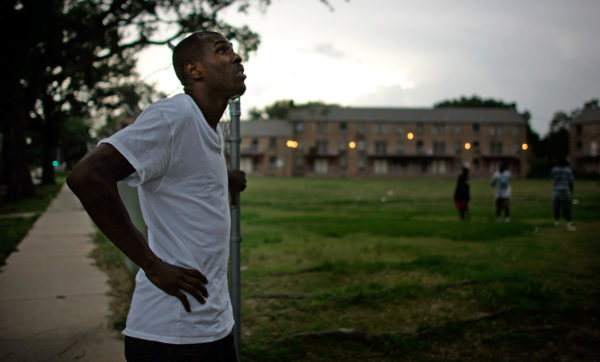An April report published by the Private Equity Stakeholder Project found that two property companies owned by major private equity firm Pretium Partners are more likely to evict renters in majority Black communities than communities that are primarily white.
According to the report “PANDEMIC EVICTOR: Don Mullen’s Pretium Partners Files to Evict Black Renters, Collects Billions From Investors,” Progress Residential and Front Yard Residential, both owned by Pretium Partners, filed 500 evictions in the first 10 weeks of 2021.

About 246 of the evictions were filed in two counties of metropolitan Atlanta, Georgia: Dekalb and Clayton counties. Both counties have majority Black populations. Since the start of the year, the companies have filed to evict 12 percent of the companies’ renters in DeKalb County, where 55 percent of residents are Black. In Clayton County, where 73 percent of residents are Black, the companies have filed to evict 9.5 percent of the renters.
By contrast, in Seminole and Polk counties in Florida, the companies have filed to evict a smaller number of residents in the mostly white communities.
In Seminole County, which is about 15 percent Black, the company filed to evict 1.1 percent of its renters, while in Polk County, which is about 19 percent Black, the companies filed to evict 2.4 percent of renters.
“The company has filed to evict more than a thousand residents since last September,” Jim Baker, the executive director of the Private Equity Stakeholder Project, told NPR. The group that tracks corporate landlords included the discovery of the racial disparity in the report about Pretium.
Baker called the racially disparate numbers “incredibly disturbing.” He said the company has filed to evict 20 percent of its residents in those mostly Black counties in Georgia since the start of the year.
Pretium Partners is the second-largest owner and operator of single-family rental homes in the United States and owns about 55,000 homes and is headed by former Goldman Sachs partner Don Mullen.
The number of evictions filed by companies owned by the firm continues to grow despite the CDC’s eviction moratorium amid the pandemic. The moratorium was extended in September and will expire on June 30.
In a court filing, Pretium called the moratorium an “unconstitutional overreach.” Progress Residential and Front Yard Residential have filed to evict 1,300 renters since the pandemic began.
The Federal Trade Commission (FTC) and Consumer Financial Protection Bureau (CFPB) announced on March 29 that they would investigate evictions by “private equity firms” and “major multistate landlords,” amid reports that people were being forced from their homes “despite the government prohibitions.”
Front Yard Residential has also drawn complaints from predominately Black renters in Minneapolis who say the company has failed to maintain their homes.
Shanika Henderson, a Front Yard resident who lives with water and mold issues, said of the company’s property management arm, “While HavenBrook Homes has never come out to make any repairs, and hasn’t answered any of my phone calls, they still make sure to send out a reminder at the start of every month to pay rent. In fact, when the COVID-19 pandemic began in March, they sent me a few notices that they would not be carrying out any repairs unless they were very urgent, but they still wanted to remind us to pay our rent on time.”
A study by a tenant organizing group in the Twin Cities found that 35 percent of Front Yard residents complained of leaks, water damage, flooding or plumbing issues. Almost a quarter of residents dealt with an infestation of some sort.
Peter Hepburn, a researcher with the Eviction Lab at Princeton University, said the fact that Black renters typically have lower incomes and smaller savings doesn’t explain why they are twice has likely to have eviction cases filed against them nationally.
“I think there’s reason to suspect that landlords may be quicker to file for eviction against a Black tenant who’s fallen behind on rent than a white tenant,” said Hepburn.
Pretium said in a statement that the report makes “baseless assertions” and claimed property managers “work with residents and seek to avoid eviction and have added more than a dozen employees to assist residents during this unprecedented pandemic.”
The company also claims it waived millions of dollars in late rent fees and secured over $10 million in government rental-assistance money for residents.


